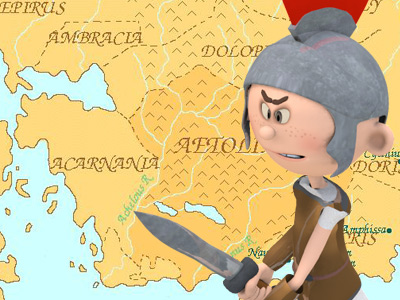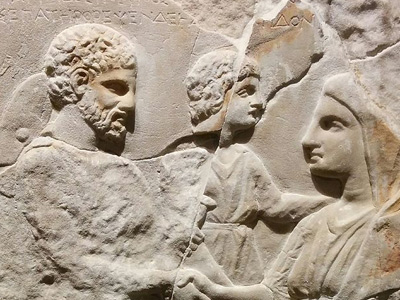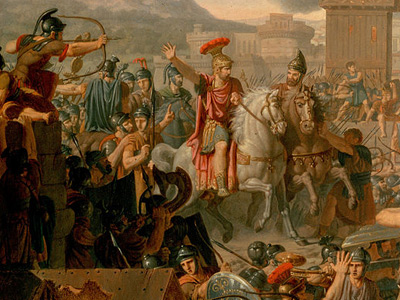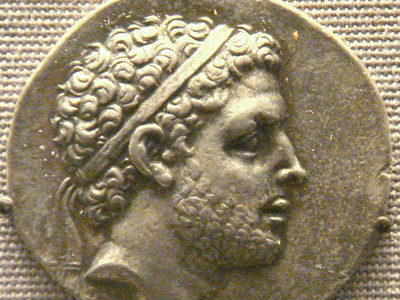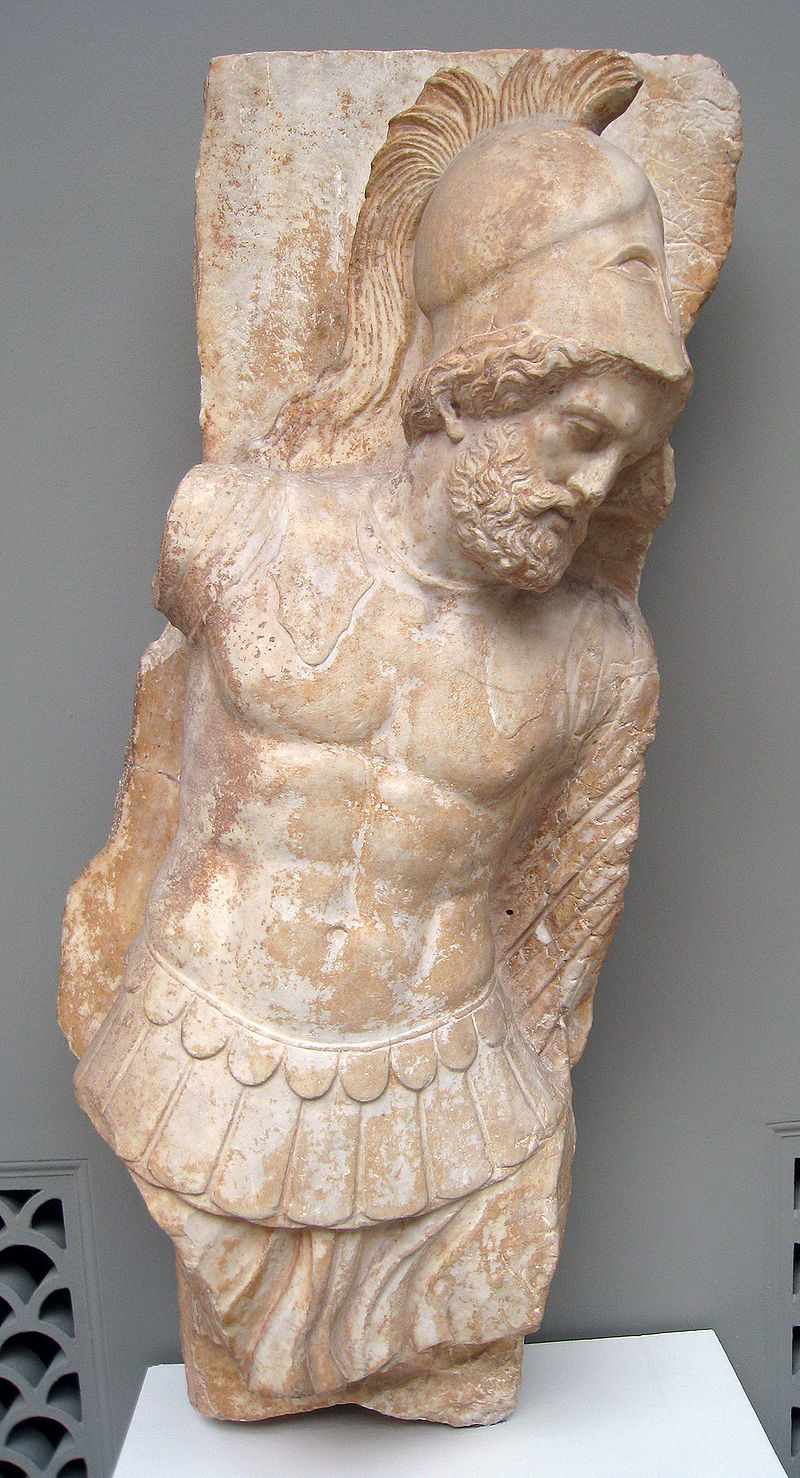Third Macedonian War (171–168 BC)
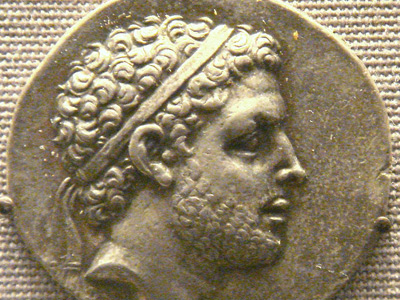
The Third Macedonian War (171–168 BC) was a war fought between the Roman Republic and King Perseus of Macedon. In 179 BC King Philip V of Macedon died and was succeeded by his ambitious son Perseus. He was anti-Roman and stirred anti-Roman feelings around Macedonia. He was suspected of preparing for war against Rome by the Romans and their most important ally in the east, Eumenes II of Pergamon. Tensions escalated and Rome declared war on Macedon. The Romans The Roman Republic was a form of government of Rome and the era of the classical Roman civilization when it was run through public representation of the Roman people. Beginning with the overthrow of the Roman Kingdom (traditionally dated to 509 BC) and ending in 27 BC with the establishment of the Roman Empire, Rome's control rapidly expanded during this period - from the city's immediate surroundings to hegemony over the entire Mediterranean world. marched with newly recruited and quite inexperienced troops from Epirus, on the west coast, to Thessaly through difficult mountain passes. It is likely that the priority of the Roman commander was to establish a solid foothold in Thessaly.
The Roman Republic was a form of government of Rome and the era of the classical Roman civilization when it was run through public representation of the Roman people. Beginning with the overthrow of the Roman Kingdom (traditionally dated to 509 BC) and ending in 27 BC with the establishment of the Roman Empire, Rome's control rapidly expanded during this period - from the city's immediate surroundings to hegemony over the entire Mediterranean world. marched with newly recruited and quite inexperienced troops from Epirus, on the west coast, to Thessaly through difficult mountain passes. It is likely that the priority of the Roman commander was to establish a solid foothold in Thessaly.
In the winter of first year Perseus conducted a brief campaign in Illyria. In the spring he tried to provoke the Romans into fights in Thessaly (the Greek state where the Roman troops were stationed), near the border of Macedon. A pitched battle, the Battle of Callicinus, was fought. It was inconclusive, but was considered a Macedonian victory because the Romans suffered greater casualties. After this it seems that the Romans concentrated on harvesting grain to feed their troops. Perseus carried out some attacks which did not amount to more than skirmishes.
In the second year of the war, the consul Aulus Hostilius Mancinus was an ineffective commander. He tried repeatedly to force his way through the south-western border of Macedon without success. Perseus anticipated all his moves. He was also defeated in battle. The ancient Roman historian Livy found this campaign of this year so uneventful that he did not report any details.
In the Third year the consul Quintus Marcius Philippus undertook a heroic passage through almost impassable passes of the mountains of the Olympus range and reached south-western Macedon. Perseus panicked and evacuated the area on the other side of these mountains. This enabled the Romans to fight the campaign of the next year in Macedon.
In the fourth year Perseus fortified the River Elpeus to prevent a Roman advance. The consul Lucius Aemilius Paulus ordered a successful enveloping operation. Perseus withdrew near the city of Pydna. Aemilius won the Battle of Pydna which made the Romans victorious in this war. After this there were mopping-up operations and a pursuit of the fugitive Perseus. There was also a brief war against Gentius, the king of Illyria, who had been cajoled into provoking a war with Rome in Illyria by Perseus. On the way back to Rome Aemilius went to Epirus. The senate allowed his army to plunder Epirus because it had switched sides and gone over to Perseus; 150,000 Epirots were enslaved. For his success in Macedon, Lucius Aemilius Paulus was given the agnomen of Macedonicus (winner in Macedon).
Most of the war was fought in Thessaly (which bordered with Macedon), where the Roman troops were stationed, and in Macedon. Other Greek states were involved to various degrees in this war. Epirus, which was on the west coast of Greece. The Aeotolians, who lived on the part of the western portion of the northern coast of the Gulf of Corinth, which separates Greece and the peninsula of the Peloponnese. Boeotia, which is on the western part of the northern coast of the Gulf of Corinth and a short stretch of the coast of on the Gulf of Euboea which separates the island of Euboea from the eastern coast of the mainland. Achaea, which was in the northern and central part of the Peloponnese and whose city-states formed the Achaean League. Athamanians, which was a small kingdom in central Greece between Epirus and Thessaly.
HISTORY
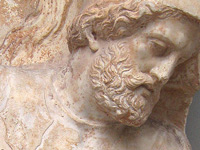
RESOURCES
This article uses material from the Wikipedia article "Third Macedonian War (171–168 BC)", which is released under the Creative Commons Attribution-Share-Alike License 3.0.
© Stories Preschool. All Rights Reserved.
